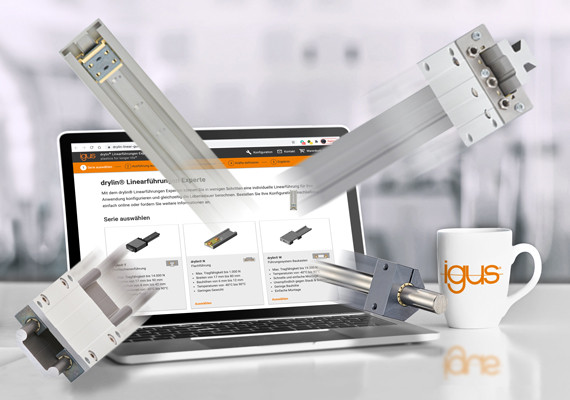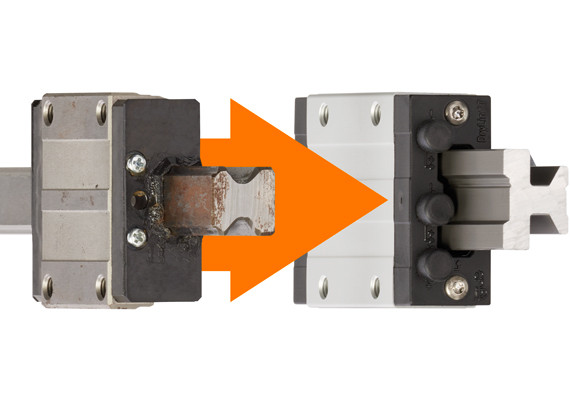Can any manufactured product be classed as eco-friendly or are some simply sustainable?
Vishaka Upreti | 10 May 2021

The definition of eco-friendly is “not environmentally harmful”. This term can be quite misleading when referring to products. There appears to be a collective of terms under the “eco-friendly” umbrella that can be misconstrued when defining the environmental impact of products; green, sustainable and environmentally friendly to name a few.
In adverts and in the media, more and more companies are “Greenwashing” products. This is a term that implies that something doesn’t specify why it is eco-friendly and is therefore misleading consumers. It claims to be “eco-friendly” but with no evidence to reinforce this.
This discussion has raised questions at igus®, can the drylin® linear slides fall under the “eco-friendly” criteria or should the word “sustainable” be used as a more accurate description and if so why? This led to open discussions and varying opinions on the subject…

Thinking laterally, virtually all manufacturing has an impact on the environment. When you consider the processes of having to make a product:- energy, product waste, transportation etc, all means that products that initially fit the definition of eco-friendly are not actually eco-friendly. Whereas when we say something is sustainable, it means that a single attribute has a positive impact for the environment but not necessarily everything about the product. igus drylin products are a combination, both eco-friendly and sustainable. These products are classed as an “effective product.” These are products that are less harmful to the planet as they can be reused without having to be replaced or thrown away. This categories igus products perfectly.
There are many reasons why the drylin bearing range is the most eco-friendly sustainable linear system and here are some examples:

- It is rare that entire igus housings need to be replaced due to wear. Having the ability to change a polymer liner within the housing is not only cost-effective and time-saving but is also sustainable. Machine downtime is limited as replacing a liner is a quick and simple job, a lot faster than replacing complete housings.
- No lubrication contributes towards environmental preservation, the elimination of any requirement for grease or oil is a significant environmental “win”. Also, lubrication can harbour bacteria and without the need for lubrication and with the ability of complete washdowns, it is a far more hygienic system compared to traditional ball bearing systems . In addition to this, catastrophic failure is avoided, therefore eliminating damage of associated machinery and components.
- igus drylin products are lightweight which means less energy is required for transportation. drylin is hugely utilised in industries such as automotive, railway and the aerospace industry, therefore with products many times lighter than traditional metal systems, this equates to a reduction of energy required for transportation.
- Within the drylin range, polymer liners are used as a low coefficient of friction surface. This low friction, without the need for seals or wipers, often results in a lower power requirement in a machine.
- The production of igus polymers is almost entirely free of waste, any surplus plastic is simply re-granulated and used. The factory is accredited to ISO14001.
- igus has a lifetime calculator to establish the most suitable material to get the longest life span of products. This might not seem to be an environmental consideration but ensuring the best material is used to get the best lifetime ultimately means there is less requirement to replace the parts, therefore less waste.
- All drylin R products are 100% recyclable.
Taking all of these points into consideration, when we consider the question earlier, “can the igus drylin products fall under the “eco-friendly” criteria” truthfully, the answer remains ambiguous and open for interpretation. igus drylin products are certainly kinder to the environment than traditional metal ball bearing systems however to claim that they are eco-friendly remains difficult to justify, can any product be constituted as “eco-friendly” simply due to the manufacturing process? They should be described as the most eco-friendly sustainable linear systems available and inevitably these are still having an enormous positive impact on the planet.

igus has invested millions of pounds into helping combat some of the environmental challenges of our time.

